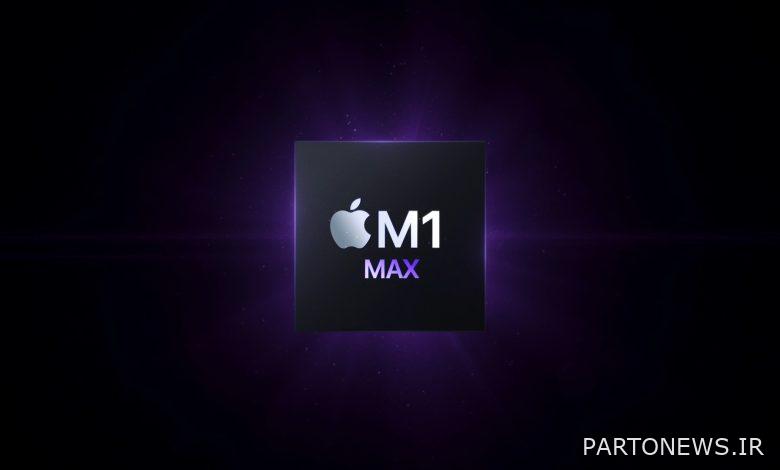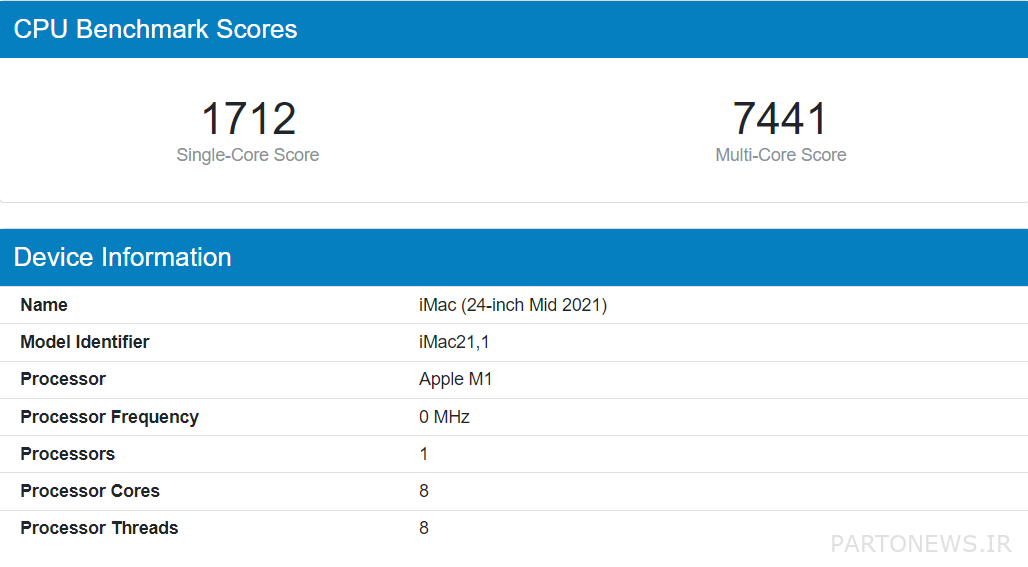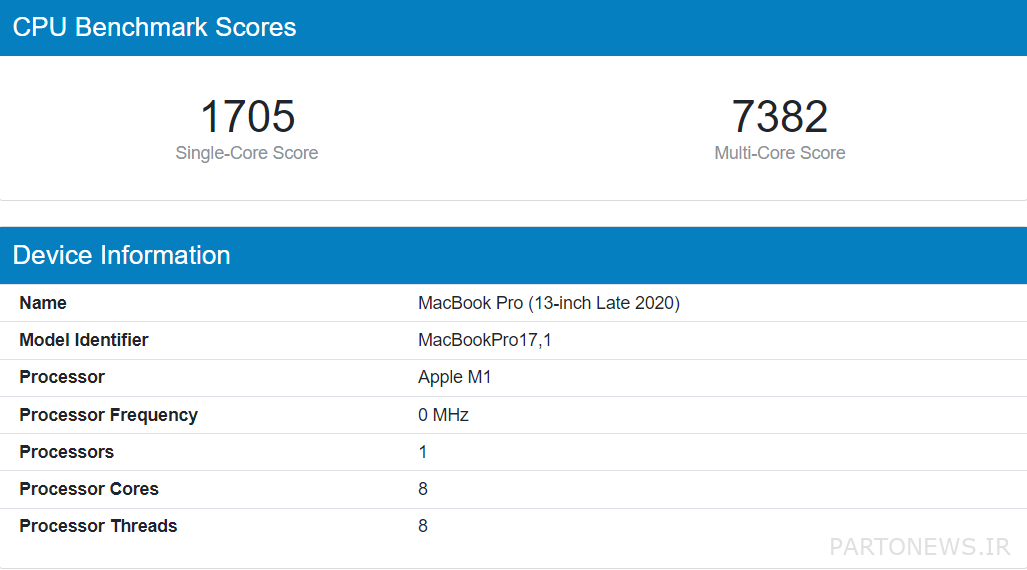Apple’s first unofficial benchmark M1 Max – 55% faster than M1

After last night’s ceremony, Apple is now the first Unofficial benchmark Apple M1 Max silicon leaked, showing single-core and multi-core performance in Geekbench 5.
The tech giant unveiled the flagship chip and the fastest M1 model called M1 Max at its Unleashed event, which you can see more details in another article. The company claims that the system performance on the new chip will be up to 70% better than the original M1 chip, but we need informal and independent results to see the actual performance.
Apple’s first unofficial Silicon M1 Max benchmark
According to the Geekbench 5 benchmark leaked, the M1 Max CPU scored 1749 on single-core and 11542 on multi-core in macOS 12.4. Interestingly, the Macbook Pro 18.2 is used, which is not an official configuration because Apple has only introduced the 14.2 and 16.2-inch models. Maybe this is just an internal testing platform that Apple has used and is not yet ready for release. We may see its release in the future, but we can not open much on it.
To compare performance, the M1 CPU on the MacBook Pro 2020 has 8 cores and a clock speed of around 3.2 GHz. Although the M1 Max has 25% more cores (10 vs. 8) and will probably have a slightly higher clock speed, it still uses 5nm manufacturing technology. Overall, we see 2 to 3 percent better single-core performance, but in multi-core tests, Apple’s new chip shines. On average, the M1 Max is 55% faster than the M1 on the MacBook Pro and iMac.


Since the comparison is made under macOS, it is not correct to compare it to Intel and AMD x86 chips because their processors are tested in Windows 10 and Windows 11. In any case, the M1 Max has the same performance as the Mac Pro with a 12-core Xeon W 3235 processor clocked at 3.3 GHz. Despite the different operating systems, this silicon outperforms the Ryzen 9 5800X, Core i9 11900K and Core i9 10900K chips in terms of multiple cores.
These results are fantastic for the M1 Max, a chip that is expected to consume around 50 to 60 watts. Of course, when its 32-core graphics are also used. In any case, we have to wait for more tests, but it seems that Apple is narrowing its gap with Intel and AMD every day.
Score: 5.0 Out of 5 (3 votes)
wait a little…

